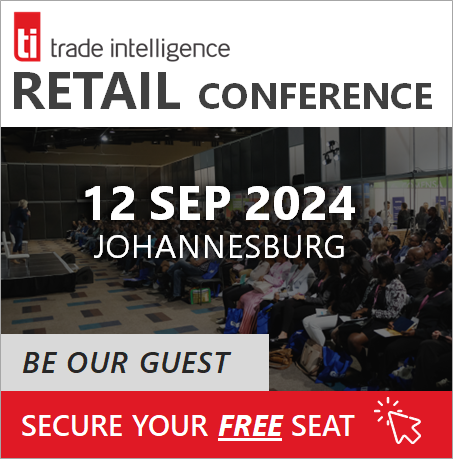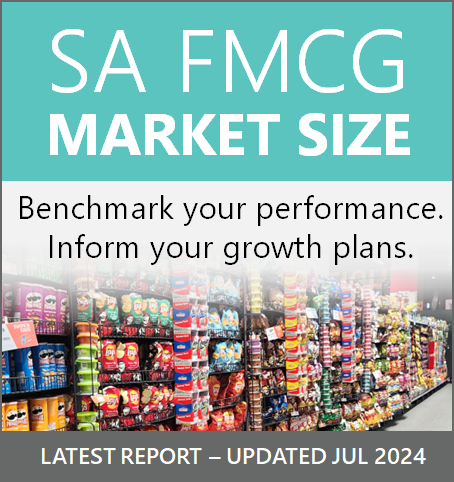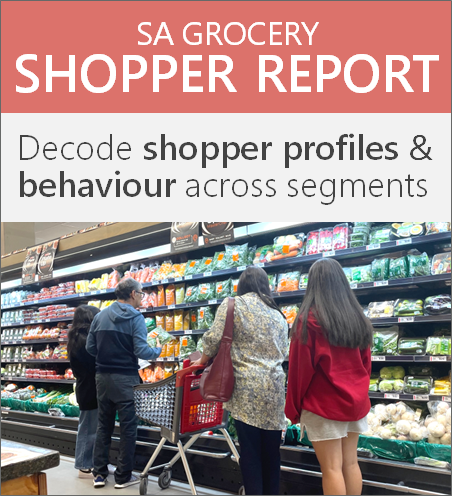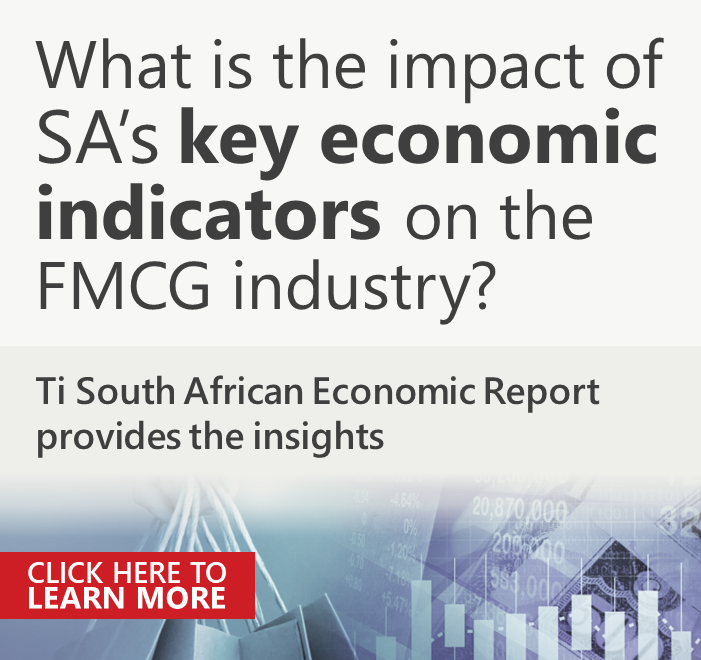
THIS ISSUE: 25 Mar - 31 Mar
Supply chain efficiency remains a relatively untracked frontier and has the potential to offer massive dividends in customer service, cost savings and sustainability. Don’t ask us, ask Massmart (below) who seems to be making some solid strides in that area. Elsewhere in your Tatler, a Clicks update, sustainable credit for Woolies, and international retailers step up their efforts to help Ukraine. Enjoy the read.
YOUR NUMBERS THIS WEEK
RETAILERS AND WHOLESALERS
-
Clicks Healthy returns
Clicks has issued a trading update for the six months through February, and not too much in the way of surprises. The business notes that HEPS will be +20 – 30% up for the period, assisted thither by a handsome R250m SASRIA payment in respect of losses sustained during last July’s bout of social unrest. Clicks claimed a total of R726m from SASRIA; thus far it has landed R467m of that. In other Clicks news, the business opened its 800th store last week, in Somerset Crossing in the Western Cape. The plan is to open between 25 and 30 new stores in South Africa every year, with a target of 900 by 2026. Some more of those numbers: the business currently operates in South Africa, Botswana, Lesotho, Namibia, and eSwatini, employs over 16,500 people, and runs 650 pharmacies and 195 Clicks clinics. Its loyalty programme reaches around 9.5 million people.
Comment: Clicks hit its stride under David Kneale but has maintained its soaring trajectory ever since. Truly a great South African business.
-
-
Massmart On track for growth
Doing the quiet work of futureproofing Massmart during a not untroubled ambit in the Group’s history is its supply chain team, which in recent years has made great strides in consolidating the logistics, warehousing and stock control systems across the business. One of the steps it has taken has been to consolidate drop-off for suppliers at three mega-DCs, at Brackengate in the Western Cape, Northfields in KwaZulu-Natal, and Riversands in Gauteng. The completion of these facilities was fast-tracked to help the Group get its supply chain up and running rapidly after the devastation of July’s civil unrest, creating a powerful platform for future supply chain efficiency and resilience. On the stock management side, the business is busy launching Trackmatic, a supplier platform that provides a data-led approach to improving stock forecast accuracy and will eventually allow Massmart to proactively manage supply constraints in the face of planned or known shortages.
Comment: Impressive work from a business which seems to have a lot of gas in the tank and an increasingly clear sense of where it wants to go.
-
-
In Brief A credit to the business
A little more about those Pick n Pay vertical in-store farms we celebrated last week. They are in fact relatively modest representations of a type of agriculture practiced on a much larger scale by PnP supplier and partner CAN-Agri. Later this year, all produce sourced from CAN-Agric will carry a QR code, enabling punters to track their veggies from seed to table. Over at Shoprite, it’s beefed up the board with the addition of Dawn Marole, currently the executive chairman of investment holding company Executive Magic, and Paul Norman, an experienced corporate affairs and HR hand, and the current group chief HR officer at MTN. Finally, Woolworths has partnered with Standard Bank to open the first sustainability-linked credit line for working capital in South Africa, with projects linked to the debt that are compliant with environmental, social and governance standards. Woolies is now committed to ensuring that, where possible, all of its future debt will be ESG-linked.
Comment: Pioneering stuff, as always, from a retailer which recognised early that doing the right thing was good for business.
-
-
International Retailer The winds of war
In Europe, SPAR International has activated its network to deliver vital supplies and aid to Ukraine. Using its Polish infrastructure, by 18 March the business had delivered 140 tons of essential goods for distribution through its Ukraine member stores. SPAR International is also working with World Central Kitchen to bring hot meals to families in cities across Ukraine. In the UK, Lidl is betting big on the ongoing growth of that market for discounters, with the opening of its largest ever DC, a 1.2million sq ft behemoth – that’s 18 full-size football pitches – near Luton, which will employ 1,200 people. Incidentally, Lidl is also ramping up its war effort, sending €10m in funds, food, textiles and hygiene products to countries neighbouring Ukraine for distribution to refugees. In the US, the world’s biggest company is pushing to get even bigger: Walmart has let it be known that it wishes to employ a further 50,000 staff by the end of April, including personal shoppers, delivery drivers and data scientists, inter alia. It’s looking to expand InHome, its direct-to-fridge grocery delivery business, from 6 million households currently to 30 million by the end of the year.
Comment: As the situation in Ukraine is showing, we are now living in a world where many duties of the nation state and of international organisations are being assumed by the private sector.
MANUFACTURERS AND SERVICE PROVIDERS
-
Mondelez One bite at a time
A quick check in with global snacking outfit Mondelez International, bringer to market of such treat drawer staples as Cadbury Dairy Milk, Oreo, and local icons Chappies bubble gum. The business is aiming to accelerate its growth in sub-Saharan Africa and Africa and capture more market share in these desirable geographies. And it starts with the basics. “We will continue to upgrade our current operations,” says Alisdair Sinclair, MD South Africa. “There is capital that is put aside on an annual basis that we then leverage to invest in our plants to ensure that we are producing the highest quality standard of product in the market. That's your competitive advantage.” The business is also open to growth by acquisition, although – you will recall – it terminated its talks with AVI last December re. the purchase of the latter’s Snackworks division. While the business is open to the idea of opening plants elsewhere, it sees South Africa as its springboard for growth on the continent.
Comment: Africa remains the continent of opportunity for global brands. As a country and an industry, we need to do everything possible to provide an attractive gateway for these brands.
-
-
In Brief Feeding the nation
What would a week be without a story about De Boeren Ko-operatieve Molen Maatschappij Beperkt? AKA, of course, Bokomo, currently celebrating its 100th anniversary with the theme ‘Good Things Never Grow Old’, maker of such staples as Weet-Bix, corn flakes, Maltabella and of course rusks, and now under the visionary new management of PepsiCo. May the next hundred years prove as successful for this icon of our industry. Unrelated, last week around 150 women affiliated with the Women on Farms Project (WFP) marched to Distell’s offices in Stellenbosch to present a memorandum demanding that the company take action against its suppliers that disregard human and labour rights. “While the company does not represent ‘commercial farmers’ in either the Western Cape or in South Africa, as a leading player in the wine industry and a key proponent of the industry’s transformation, we accepted the memorandum,” said a Distell spokesperson. Finally, in as savvy a bit of brand marketing as we can remember, Bull Brand is launching ‘The State of the Strong’ podcast series, celebrating South Africans who embody Bull Brand’s ‘Stand Strong, Stand Proud,’
Comment: Three stories you could never read anywhere else but here in the Beloved Country.
TRADE ENVIRONMENT
-
Supply Chain Big wheel keep on turnin’
More august publications than ourselves have asked the question “What’s up with the dear old supply chain these days?” Business Day’s Itumeleng Merafe is here to tell you: “This year,” he writes in a recent column, “one of the biggest challenges facing a mid-market SA business – whether manufacturer, wholesaler, retailer or distributor – will lie in building up inventory from a historically low base.” This, he says, involves restocking, planning and finding the right logistics and banking partners, as well as a solid understanding of the constraints on the current supply chain, like the availability of vessels and containers, and increasing shipping costs. And herein lies the importance of a good logistics partner.
Comment: In the last few couple of years, so much of what we took for granted has been shaken to its foundations. In such times, information is power, and preparation essential. Merafe’s piece is well worth a read in its entirety, over here.
Sign up to receive the latest SA and international FMCG news weekly.
Tatler Archive
“If more of us valued food and cheer and song above hoarded gold, it would be a merrier world.”







1.png)
